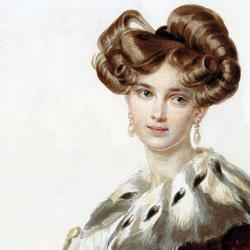"Native speech. Lessons of belles-lettres” Alexander Genis, Peter Vail. Peter Vail - Native Speech. Bell Language Lessons Weil Genis Native Speech
Native speech. belles-lettres lessons
Format: audiobook, MP3, 192kbps
Weil Peter, Genis Alexander
Year of issue: 2013
Genre: Modern prose
Publisher: Studio Barmaley
Executor: Captain Abr
Corrector: Bondarenko Svetlana a.k.a smb46
Duration: 07: 50: 00
Description:
Reading the main books of Russian literature is like revisiting your biography. Life experience was accumulated along with reading and thanks to it ... We grow with books - they grow in us. And once the time comes for a rebellion against the attitude to the classics, invested in childhood ..., wrote Peter Vail and Alexander Genis in the preface to the very first edition of their Native speech twenty years ago.
Two journalists and writers who emigrated from the USSR created a book in a foreign land, which soon became a real, albeit a little playful, monument to the Soviet school literature textbook. We have not yet forgotten how successfully these textbooks forever discouraged schoolchildren from any taste for reading, instilling in them a persistent aversion to Russian classics. The authors of the Native Speech tried to awaken again among the unfortunate children (and their parents) an interest in Russian belles-lettres. It looks like the attempt was a complete success. The witty and fascinating anti-textbook by Weil and Genis has been helping graduates and applicants successfully pass exams in Russian literature for many years.
Preface. Andrei Sinyavsky. fun craft
From the authors
Poor Lisa's legacy. Karamzin
The celebration of the undersized. Fonvizin
genre crisis. Radishchev
Gospel of Ivan. Krylov
Someone else's grief. Griboyedov
Liberty Charter. Pushkin
instead of Onegin. Pushkin
At the post. Belinsky
Rise to prose. Lermontov
Pechorin heresy. Lermontov
Russian God. Gogol
The burden of a little man. Gogol
Meshchanskaya tragedy. Ostrovsky
Beetle formula. Turgenev
Oblomov and others. Goncharov
Romance of the century. Chernyshevsky
Love triangle. Nekrasov
Toy people. Saltykov-Shchedrin
Epic mosaic. Tolstoy
Terrible Judgment. Dostoevsky
The way of the novelist. Chekhov
Everything is in the garden. Chekhov
From the artist
I have wanted to write this book for a long time. Coast, coast .... And then suddenly, due to some decisive circumstances, he decisively took it and wrote it down. School curricula have changed and the book is no longer 100 percent consistent with them as before, but it (the book!) Is not for schoolchildren, but for us adults, those who are able to read some books remotely, without text. (Inside it is wonderfully told about this in application to Onegin.) I remember how I once read it for the first time - already a little familiar with Weil, and waiting for something ... But this - a feast !!! - no, not expected! Frozen with pleasure. For, as Weil himself says, what could be more interesting, more intimate than this: talking about Russian books? What do you, friends, wish from the bottom of my heart!
And there would be no pleasure if our beloved (yes!) Svetlana had not raked out a mountain of spelling errors from the record, over which we had to work for some time! And for that, kudos to her!
In this book, I did not sing, did not play the guitar, and the musical sounds were published mainly by the Symphony Orchestra of the State Television and Radio Broadcasting Company (and some others). The notes were written by P.I. Tchaikovsky, M. Mussorgsky, Glinka, Borodin, Griboyedov and other Russian composers.
Filled: Bagira M
Size: 709.81 MB (744286486 Bytes)
Native speech. belles-lettres lessons Alexander Genis, Peter Vail
(No ratings yet)
 Title: Native speech. belles-lettres lessons
Title: Native speech. belles-lettres lessons
About the book "Native speech. Lessons in belles lettres" Alexander Genis, Peter Vail
“Reading the main books of Russian literature is like revisiting your biography. Life experience was accumulated along with reading and thanks to it ... We grow with books - they grow in us. And once the time comes for a rebellion against the attitude to the classics invested in childhood,” wrote Peter Vail and Alexander Genis in the preface to the very first edition of their “Native Speech”.
The authors who emigrated from the USSR created a book in a foreign land, which soon became a real, albeit a little playful, monument to the Soviet school textbook of literature. We have not yet forgotten how successfully these textbooks forever discouraged schoolchildren from any taste for reading, instilling in them a persistent aversion to Russian classics. The authors of "Native Speech" tried to awaken again among the unfortunate children (and their parents) an interest in Russian belles-lettres. It looks like the attempt was a complete success. The witty and fascinating “anti-textbook” by Weill and Genis has been helping graduates and applicants to pass exams in Russian literature for many years.
On our site about books, you can download the site for free without registration or read the online book “Native Speech. Fine Literature Lessons” Alexander Genis, Petr Vail in epub, fb2, txt, rtf, pdf formats for iPad, iPhone, Android and Kindle. The book will give you a lot of pleasant moments and a real pleasure to read. You can buy the full version from our partner. Also, here you will find the latest news from the literary world, learn the biography of your favorite authors. For novice writers, there is a separate section with useful tips and tricks, interesting articles, thanks to which you can try your hand at writing.
Quotes from the book "Native speech. Lessons in belles lettres" Alexander Genis, Peter Vail
"They knew they were rebelling, but they couldn't help but kneel."
Peter Vail, Alexander Genis
Native speech. belles-lettres lessons
Andrei Sinyavsky. FUN CRAFT
Someone decided that science must necessarily be boring. Probably to make her more respected. Boring means a solid, reputable enterprise. You can invest. Soon there will be no place left on earth in the midst of serious garbage heaps erected to the sky.
But once science itself was revered as a good art and everything in the world was interesting. Mermaids flew. Angels splashed. Chemistry was called alchemy. Astronomy - astrology. Psychology - palmistry. The story was inspired by the Muse from Apollo's round dance and contained an adventurous romance.
And now what? Reproduction reproduction?
The last refuge is philology. It would seem: love for the word. And in general, love. Free air. Nothing forced. Lots of fun and fantasy. So is science here. They put numbers (0.1; 0.2; 0.3, etc.), poked footnotes, provided, for the sake of science, with an apparatus of incomprehensible abstractions through which one could not break through (“vermeculite”, “grubber”, “loxodrome”, "parabiosis", "ultrarapid"), rewrote all this in a deliberately indigestible language - and here you are, instead of poetry, another sawmill for the production of countless books.
Already at the beginning of the century, idle book dealers thought: “Sometimes you wonder - does humanity really have enough brains for all books? There are not as many brains as there are books! - “Nothing,” our cheerful contemporaries object to them, “soon only computers will read and produce books. And people will get to take products to warehouses and landfills!”
Against this industrial background, in the form of opposition, in refutation of the gloomy utopia, it seems to me that the book by Peter Weil and Alexander Genis - "Native speech" arose. The name sounds archaic. Almost rustic. Smells like childhood. Sen. Rural school. It is fun and entertaining to read, as befits a child. Not a textbook, but an invitation to reading, to divertissement. It is proposed not to glorify the famous Russian classics, but to look into it at least with one eye and then fall in love. The concerns of "Native Speech" are of an ecological nature and are aimed at saving the book, at improving the very nature of reading. The main task is formulated as follows: "The book was studied and - as often happens in such cases - they practically stopped reading." Pedagogy for adults, by the way, to the highest degree, by the way, well-read and educated people.
"Native speech", murmuring like a stream, is accompanied by unobtrusive, easy learning. She suggests that reading is co-creation. Everyone has their own. It has a lot of permissions. Freedom of interpretation. Let our authors eat the dog in belles lettres and give out completely original imperious decisions at every step, our business, they inspire, is not to obey, but to pick up any idea on the fly and continue, sometimes, perhaps, in the other direction. Russian literature is shown here in the image of the expanse of the sea, where every writer is his own captain, where sails and ropes are stretched from Karamzin's "Poor Liza" to our poor "villagers", from the story "Moscow - Petushki" to "Journey from St. Petersburg to Moscow".
Reading this book, we see that the eternal and, indeed, unshakable values do not stand still, pinned, like exhibits, according to scientific headings. They - move in the literary series and in the reader's mind and, it happens, are part of the later problematic achievements. Where they will swim, how they will turn tomorrow, no one knows. The unpredictability of art is its main strength. This is not a learning process, not progress.
"Native speech" by Weil and Genis is a renewal of speech that encourages the reader, even if he is seven spans in his forehead, to re-read all school literature. This technique, known since ancient times, is called estrangement.
To use it, you need not so much, just one effort: to look at reality and at works of art with an unbiased look. As if you were reading them for the first time. And you will see: behind every classic beats a living, just discovered thought. She wants to play.
For Russia, literature is a starting point, a symbol of faith, an ideological and moral foundation. One can interpret history, politics, religion, national character in any way, but it is worth pronouncing "Pushkin", as ardent antagonists nod their heads happily and amicably.
Of course, only literature that is recognized as classical is suitable for such mutual understanding. Classics is a universal language based on absolute values.
Russian literature of the golden 19th century has become an indivisible unity, a kind of typological community, before which the differences between individual writers recede. Hence the eternal temptation to find a dominant feature that delimits Russian literature from any others - the intensity of the spiritual search, or love of the people, or religiosity, or chastity.
However, with the same - if not greater - success one could speak not about the uniqueness of Russian literature, but about the uniqueness of the Russian reader, who is inclined to see the most sacred national property in his favorite books. Touching a classic is like insulting your homeland.
Naturally, such an attitude develops from an early age. The main tool for the sacralization of the classics is the school. The lessons of literature played a tremendous role in shaping the Russian public consciousness, primarily because books opposed the educational claims of the state. At all times, literature, no matter how they struggled with it, revealed its internal inconsistency. It was impossible not to notice that Pierre Bezukhov and Pavel Korchagin are heroes of different novels. Generations of those who managed to maintain skepticism and irony in a society poorly adapted for this grew up on this contradiction.
However, the dialectic of life leads to the fact that the admiration for the classics, firmly learned in school, makes it difficult to see in it living literature. Books familiar from childhood become signs of books, standards for other books. They are taken off the shelf as rarely as the Parisian standard of meter.
Anyone who decides on such an act - to reread the classics without prejudice - is faced not only with old authors, but also with himself. Reading the main books of Russian literature is like revisiting your biography. Life experience was accumulated along with reading and thanks to it. The date when Dostoevsky was first revealed is no less important than family anniversaries.
We grow with books - they grow in us. And once the time comes for a rebellion against the attitude to the classics invested in childhood. (Apparently, this is inevitable. Andrey Bitov once admitted: “I spent more than half of my work on fighting with the school literature course”).
We conceived this book not so much to refute the school tradition, but to test - and not even her, but ourselves in it. All chapters of the Native Speech strictly correspond to the secondary school curriculum.
Of course, we do not hope to say anything essentially new about a subject that has occupied generations of the best minds in Russia. We just decided to talk about the most stormy and intimate events of our lives - Russian books.
Peter Vail, Alexander Genis
New York, 1989
HERITAGE OF "POOR LIZA". Karamzin
In the very name Karamzin - a certain affectation sounds. No wonder Dostoevsky distorted this surname in order to ridicule Turgenev in Possessed. It looks like it's not even funny.
Not so long ago, before the boom in Russia brought about by the revival of his History, Karamzin was regarded as a mere shadow of Pushkin. Until recently, Karamzin seemed elegant and frivolous, like a gentleman from the paintings of Boucher and Fragonard, later resurrected by the artists of the World of Art.
And all because it is known about Karamzin that he invented sentimentalism. Like all superficial judgments, and this is true, at least in part. In order to read Karamzin's stories today, one must stock up on aesthetic cynicism, which allows one to enjoy the old-fashioned innocence of the text.
Nevertheless, one of the stories, "Poor Lisa" - fortunately there are only seventeen pages and everything about love - still lives in the minds of the modern reader.
The poor peasant girl Lisa meets the young nobleman Erast. Tired of the windy light, he falls in love with a spontaneous, innocent girl with the love of his brother. However, soon platonic love turns into sensual. Liza consistently loses her spontaneity, innocence and Erast himself - he goes to war. "No, he really was in the army, but instead of fighting the enemy, he played cards and lost almost all his estate." To improve things, Erast marries an elderly rich widow. Upon learning of this, Lisa drowns herself in the pond.
Peter Vail, Alexander Genis
Native speech. belles-lettres lessons
© P. Weil, A. Genis, 1989
© A. Bondarenko, artwork, 2016
© LLC AST Publishing House, 2016 CORPUS ® Publishing House
* * *Over the years, I realized that humor for Weil and Genis is not a goal, but a means, and moreover, a tool for understanding life: if you investigate some phenomenon, then find what is funny in it, and the phenomenon will be revealed in its entirety ...
Sergey Dovlatov
Weil and Genis' "Native Speech" is an update of speech that prompts the reader to re-read all school literature.
Andrey Sinyavsky
…books familiar from childhood over the years become only signs of books, standards for other books. And they get them off the shelf as rarely as the Parisian standard of meter.
P. Weil, A. Genis
Andrey Sinyavsky
fun craft
Someone decided that science must necessarily be boring. Probably to make her more respected. Boring means a solid, reputable enterprise. You can invest. Soon there will be no place left on earth in the midst of serious garbage heaps erected to the sky.
But once science itself was revered as a good art and everything in the world was interesting. Mermaids flew. Angels splashed. Chemistry was called alchemy. Astronomy is astrology. Psychology - palmistry. The story was inspired by the muse from the round dance of Apollo and contained an adventurous romance.
And now what? Reproduction reproduction? The last refuge is philology. It would seem: love for the word. And in general, love. Free air. Nothing forced. Lots of fun and fantasy. So it is here: science. They put numbers (0.1; 0.2; 0.3, etc.), poked footnotes, provided, for the sake of science, with an apparatus of incomprehensible abstractions through which one could not get through (“vermiculite”, “grubber”, “loxodrome”, “parabiosis”, “ultrarapid”), rewrote all this in a deliberately indigestible language - and here you are, instead of poetry, another sawmill for the production of countless books.
Already at the beginning of the 20th century, idle second-hand booksellers thought: “Sometimes you wonder - does humanity really have enough brains for all books? There are not as many brains as there are books!” – “Nothing,” our cheerful contemporaries object to them, “soon only computers will read and produce books. And people will get to take products to warehouses and landfills!”
Against this industrial background, in the form of opposition, in refutation of the gloomy utopia, it seems to me that the book of Peter Weil and Alexander Genis, “Native Speech”, arose. The name sounds archaic. Almost rustic. Smells like childhood. Sen. Rural school. It is fun and entertaining to read, as befits a child. Not a textbook, but an invitation to reading, to divertissement. It is proposed not to glorify the famous Russian classics, but to look into it at least with one eye and then fall in love. The concerns of "Native Speech" are of an ecological nature and are aimed at saving the book, at improving the very nature of reading. The main task is formulated as follows: "The book was studied and - as often happens in such cases - they practically stopped reading." Pedagogy for adults, by the way, to the highest degree, by the way, well-read and educated people.
"Native speech", murmuring like a stream, is accompanied by unobtrusive, easy learning. She suggests that reading is co-creation. Everyone has their own. It has a lot of permissions. Freedom of interpretation. Let our authors eat the dog in belles lettres and give out completely original imperious decisions at every step, our business, they inspire, is not to obey, but to pick up any idea on the fly and continue, sometimes, perhaps, in the other direction. Russian literature is presented here in the image of the expanse of the sea, where every writer is his own captain, where sails and ropes are stretched from Karamzin's "Poor Lisa" to our poor "villagers", from the poem "Moscow - Petushki" to "Journey from St. Petersburg to Moscow".
Reading this book, we see that the eternal and, indeed, unshakable values do not stand still, pinned, like exhibits, according to scientific headings. They - move in the literary series and in the reader's mind and, it happens, are part of the later problematic achievements. Where they will swim, how they will turn tomorrow, no one knows. The unpredictability of art is its main strength. This is not a learning process, not progress.
“Native speech” by Weil and Genis is a renewal of speech that encourages the reader, be he seven spans in his forehead, to re-read all school literature. This technique, known since ancient times, is called estrangement.
To use it, you need not so much, just one effort: to look at reality and at works of art with an unbiased look. As if you were reading them for the first time. And you will see: behind every classic beats a living, just discovered thought. She wants to play.
For Russia, literature is a starting point, a symbol of faith, an ideological and moral foundation. One can interpret history, politics, religion, national character in any way, but it is worth pronouncing “Pushkin”, as ardent antagonists nod their heads happily and amicably.
Of course, only literature that is recognized as classical is suitable for such mutual understanding. Classics is a universal language based on absolute values.
Russian literature of the golden 19th century has become an indivisible unity, a kind of typological community, before which the differences between individual writers recede. Hence the eternal temptation to find a dominant feature that delimits Russian literature from any others - the intensity of the spiritual search, or love of the people, or religiosity, or chastity.
However, with the same - if not greater - success, one could speak not about the uniqueness of Russian literature, but about the uniqueness of the Russian reader, who is inclined to see the most sacred national property in his favorite books. Touching a classic is like insulting your homeland.
Naturally, such an attitude develops from an early age. The main tool for the sacralization of the classics is the school. The lessons of literature played a tremendous role in shaping the Russian public consciousness. First of all, because the books resisted the educational claims of the state. At all times, literature, no matter how they struggled with it, revealed its internal inconsistency. It was impossible not to notice that Pierre Bezukhov and Pavel Korchagin are heroes of different novels. Generations of those who managed to maintain skepticism and irony in a society poorly adapted for this grew up on this contradiction.
However, books familiar from childhood, over the years, become only signs of books, standards for other books. And they get them off the shelf as rarely as the Parisian standard of meter.
Anyone who decides on such an act - to reread the classics without prejudice - is faced not only with old authors, but also with himself. Reading the main books of Russian literature is like revisiting your biography. Life experience was accumulated along with reading and thanks to it. The date when Dostoevsky was first revealed is no less important than family anniversaries. We grow with books - they grow in us. And once the time comes for a rebellion against the attitude to the classics invested in childhood. Apparently, this is inevitable. Andrei Bitov once admitted: “I spent more than half of my work on fighting with the school literature course.”
We conceived this book not so much to refute the school tradition, but to test - and not even her, but ourselves in it. All chapters of Native Speech strictly correspond to the regular high school curriculum. Of course, we do not hope to say anything essentially new about a subject that has occupied the best minds of Russia. We just decided to talk about the most stormy and intimate events of our lives - Russian books.
Peter Vail, Alexander Genis New York, 1989
Legacy of “Poor Liza”
Karamzin
In the very name Karamzin one can hear cuteness. No wonder Dostoevsky distorted this surname in order to ridicule Turgenev in Possessed. It looks like it's not even funny. Not so long ago, before the boom in Russia brought about by the revival of his History, Karamzin was regarded as a mere shadow of Pushkin. Until recently, Karamzin seemed elegant and frivolous, like a gentleman from the paintings of Boucher and Fragonard, later resurrected by the artists of the World of Art.
And all because one thing is known about Karamzin: he invented sentimentalism. This, like all superficial judgments, is true, at least in part. To read Karamzin today, you need to stock up on aesthetic cynicism, which allows you to enjoy the old-fashioned simplicity of the text.






